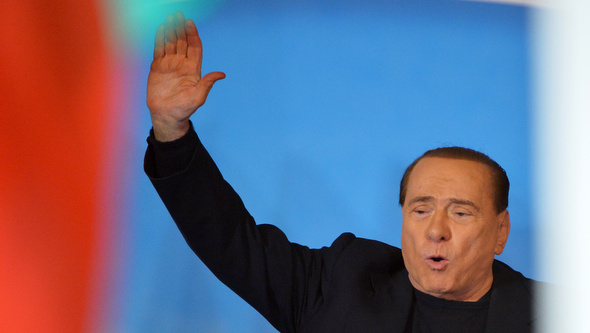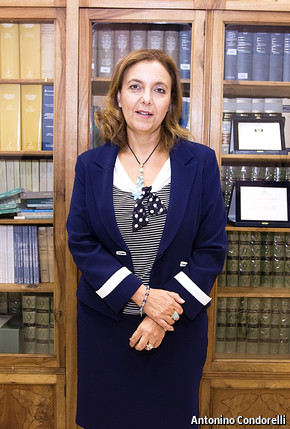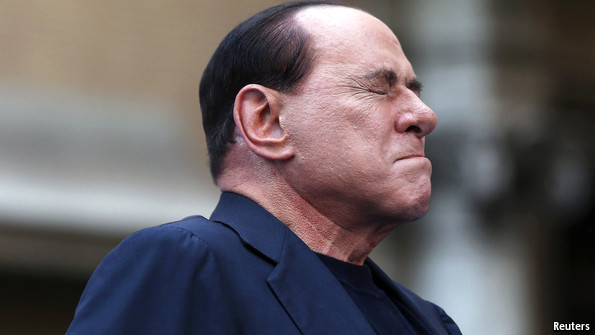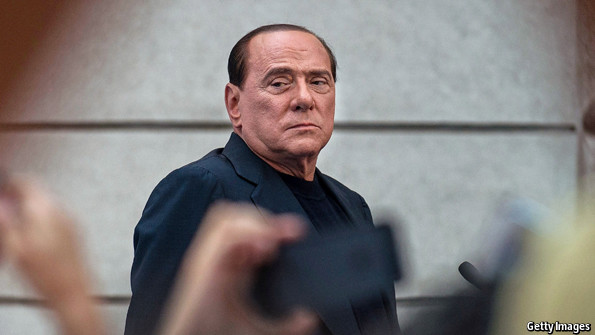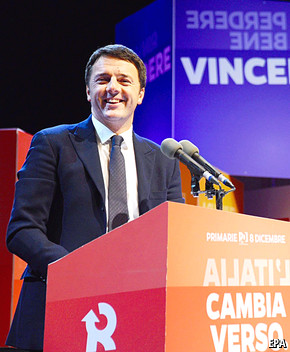 Renzi: the next prime minister?
Renzi: the next prime minister?Enrico Letta is fighting for the survival of his government
BALDING and bespectacled, Italy’s prime minister, Enrico Letta, does not immediately bring to mind a lion. But on December 11th, seeking a renewed vote of confidence from parliament, he vowed to fight like one for the survival of his government and its programme of political and economic reform. Mr Letta was testing his support after Silvio Berlusconi led most of his followers out of the governing majority last month. The prime minister won the backing of both houses, with a majority in the senate of 46 votes.
The left-right coalition is thus safe for the moment. But outside parliament the political landscape is changing rapidly and often confusingly. In little over a week, Italy has emerged from its longest post-war recession; gained a new and disturbing protest movement; lost its electoral law; and seen the start of a revolution at the top of its biggest party.
On December 10th government statisticians revised upwards their estimate of the change in GDP in the third quarter, to zero. That would make it the first three-month period since the spring of 2011 in which the economy has not shrunk. But news of the recovery, if such it proves to be, failed to impress those taking part in a burgeoning and at times violent nationwide protest by an assortment of farmers, lorry drivers, skilled workers, market stallholders, far-right activists and even some far-left militants. As Mr Letta addressed parliament, the protest was in its third day. The forconi(pitchforks) form an army of the disgruntled: hostile to globalisation and united by exasperation at the failure of Italy’s politicians to deliver any significant economic growth since the turn of the century.
The forconi’s only concrete demand is for the replacement of Italy’s entire political class, a rallying cry they share with Beppe Grillo’s Five Star Movement. However unrealistic, they give substance to the warnings of militant populism that Mr Letta’s predecessor, Mario Monti, repeatedly uttered to Angela Merkel and other European leaders as he tried in vain to get them to shift the emphasis of policy in the euro crisis from austerity to stimulus.
If Italy’s mainstream politicians are to retain the initiative, much will depend on the 38-year-old mayor of Florence, Matteo Renzi, who was elected to lead Mr Letta’s centre-left Democratic Party (PD) on December 8th. His victory was even more convincing than had been predicted: he took two-thirds of the vote on a turnout of 2.9m. The moderate Mr Renzi immediately set about bringing a gust of fresh air into his party. He named a 12-strong executive, in which nine of the members are still in their 30s and seven are women. And he announced that they would hold their first meeting of the day at 7.30am.
Mr Renzi is a man in a hurry. He had been expecting to lead his party into an election next spring and was hoping for a victory that would allow him to introduce sweeping reforms in a country where stagnation has become a habit. But on December 4th the judges of the constitutional court wrong-footed him (and others) by ruling that Italy’s electoral law, passed in 2005, was unconstitutional. The judges specifically objected to a provision whereby the party or alliance that comes first is awarded bonus seats to guarantee it a majority in the lower house of parliament.
This ruling means that, unless a new law is agreed by the time Italians next go to the polls, they will have to vote with the system created by the rest of the 2005 law: an extreme form of proportional representation that is unlikely to produce a clear outcome. But agreeing a new electoral law will not be easy. Politicians have been trying unsuccessfully for years.
A compromise should still be possible. Mr Renzi, Mr Berlusconi and Mr Grillo all agree that any new law should favour progress towards a two-party democracy. But can Mr Renzi risk launching his career in national politics by stitching up a deal with, on the one hand, a right-wing leader who has just walked out of a ruling partnership with the PD and, on the other, a self-declared populist and ex-comedian whose aim is to destroy the PD (along with every other party)? Even if he can, he risks putting an end to Mr Letta’s left-right coalition in the process. The PD’s main partner is the small New Centre Right (NCD), made up of those who refused to join Mr Berlusconi in opposition. It would benefit from the current proportional system. And, notwithstanding the outcome of the confidence vote, the government is going to need the NCD to survive.
